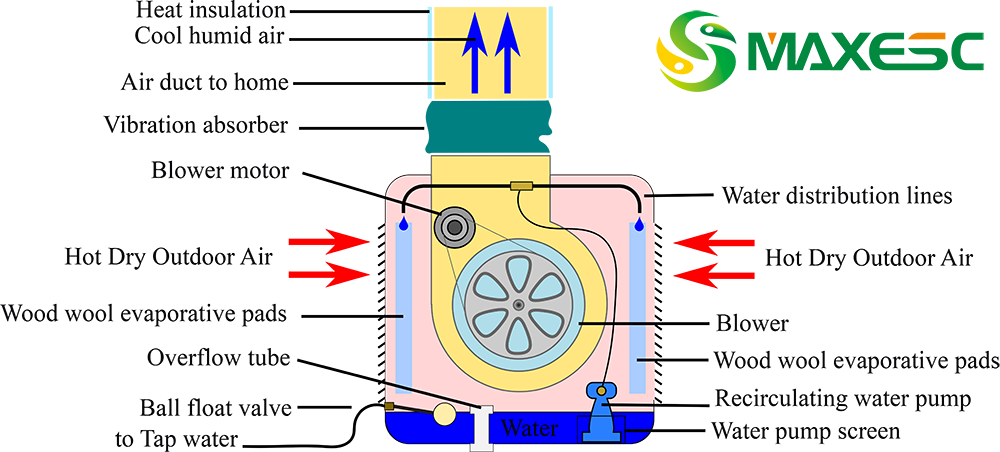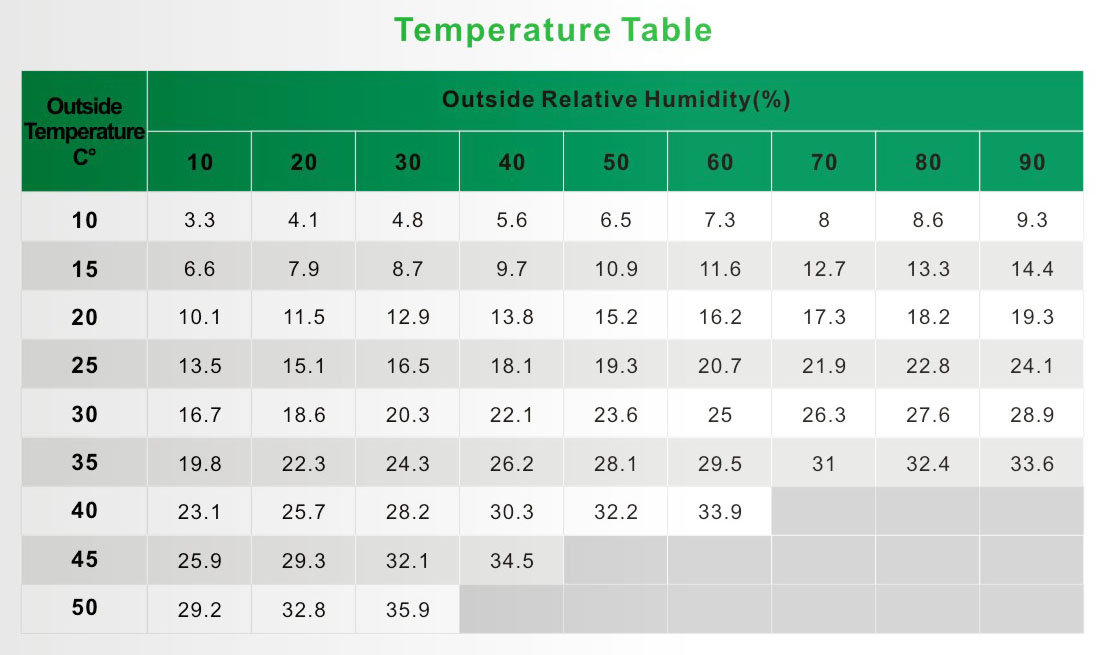
An evaporative cooler (also known as desert
cooler, wet air cooler and swamp cooler) is used to chill air by evaporating
water. Evaporative cooling devices are different from the typical systems
of air-conditioning that adopt vapor-compression or absorption refrigerant
circulations. The theory of evaporative coolers is to utilize the high heat
content of water when evaporated. During the transitional stage from fluid
water to water steam (evaporation), the dry air can be cooled magnificently,
thus saving much energy compared to refrigeration. In the exceedingly arid
climates, evaporative cooling of air shows an additional advantage that it
renders the air moister to give to building residents the best comfort
possible.
The latent capacity of evaporative cooling depends on the wet bulb depression, the temperature diversity between the dry bulb and the wet bulb. Under dry climatic conditions, evaporative cooling can consume less energy and the entire air conditioning devices can be a replacement of compressor-based chilling. Under climatic conditions not deemed as drought, indirect evaporative cooling is still able to take use of the evaporative cooling course with no dampness raised. Passive evaporative cooling tactics work as well as mechanical evaporative cooling systems with no complication of devices and pipework.


 Send Email
Send Email 国内
国内




